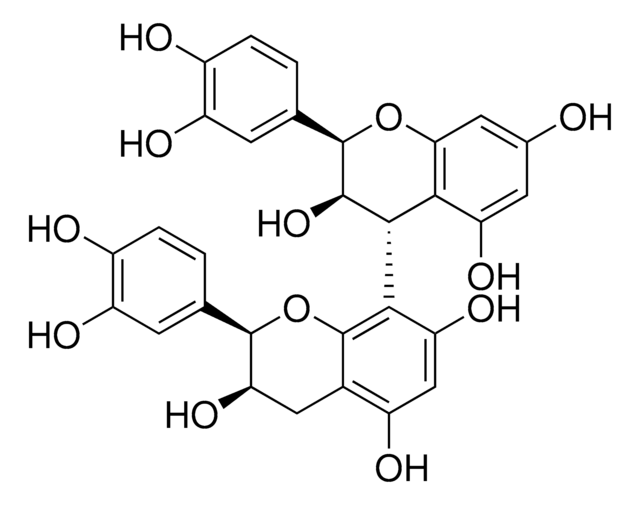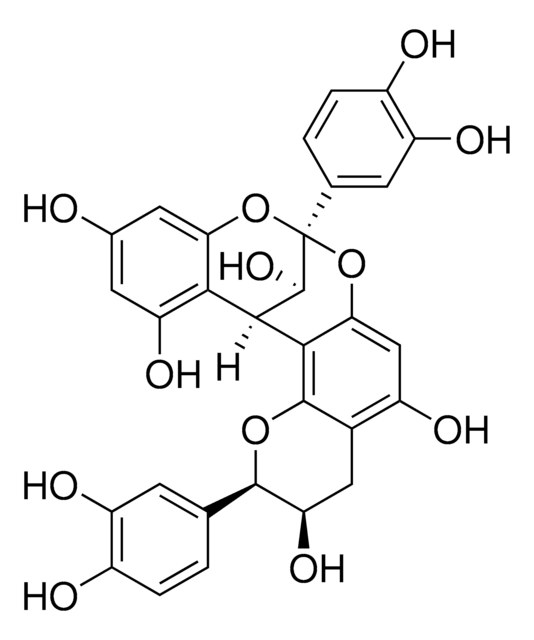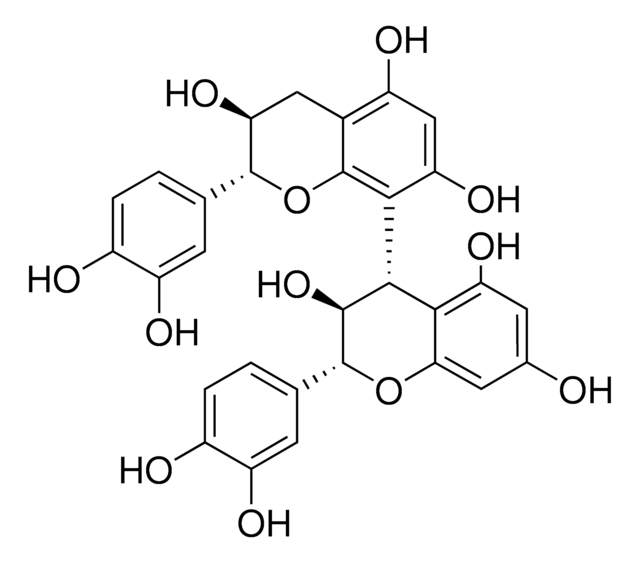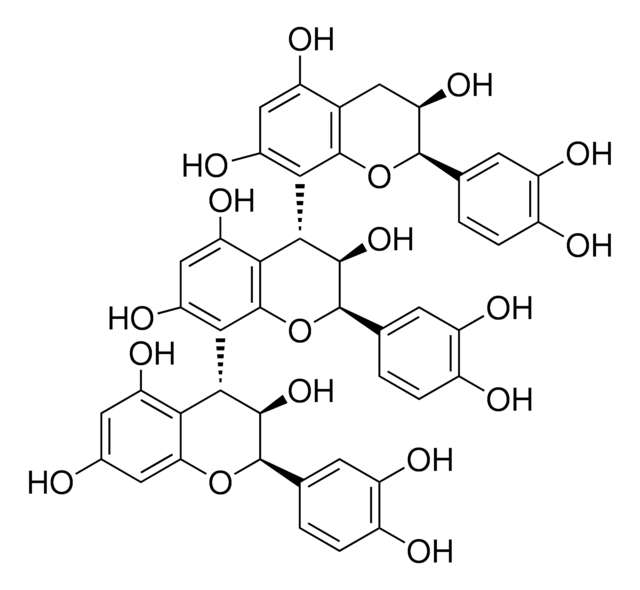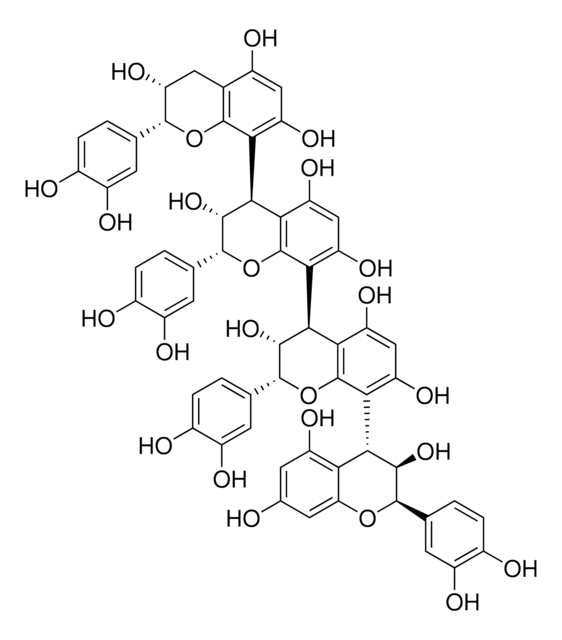42157
Procyanidin B2
analytical standard
Synonyme(s) :
(−)-Epicatechin (4β-8)-(−)-epicatechin, 4,8″-Bi-[(+)-epicatechin], cis,cis″-4,8″-Bi(3,3′,4′,5,7-pentahydroxyflavane), Proanthocyanidin B2
About This Item
Produits recommandés
Qualité
analytical standard
Niveau de qualité
Pureté
≥90% (HPLC)
Technique(s)
HPLC: suitable
gas chromatography (GC): suitable
Application(s)
food and beverages
Format
neat
Température de stockage
2-8°C
Chaîne SMILES
O[C@@H]1Cc2c(O)cc(O)c([C@@H]3[C@@H](O)[C@H](Oc4cc(O)cc(O)c34)c5ccc(O)c(O)c5)c2O[C@@H]1c6ccc(O)c(O)c6
InChI
1S/C30H26O12/c31-13-7-20(37)24-23(8-13)41-29(12-2-4-16(33)19(36)6-12)27(40)26(24)25-21(38)10-17(34)14-9-22(39)28(42-30(14)25)11-1-3-15(32)18(35)5-11/h1-8,10,22,26-29,31-40H,9H2/t22-,26-,27-,28-,29-/m1/s1
Clé InChI
XFZJEEAOWLFHDH-NFJBMHMQSA-N
Vous recherchez des produits similaires ? Visite Guide de comparaison des produits
Description générale
Application
Conditionnement
Code de la classe de stockage
11 - Combustible Solids
Classe de danger pour l'eau (WGK)
WGK 3
Point d'éclair (°F)
Not applicable
Point d'éclair (°C)
Not applicable
Équipement de protection individuelle
Eyeshields, Gloves, type N95 (US)
Faites votre choix parmi les versions les plus récentes :
Déjà en possession de ce produit ?
Retrouvez la documentation relative aux produits que vous avez récemment achetés dans la Bibliothèque de documents.
Les clients ont également consulté
Articles
Antioxidants protect biological systems from oxidative damage produced by oxygen-containing free radicals and from redoxactive transition metal ions such as iron, copper, and cadmium.
Protocoles
HPLC Analysis of Polyphenols in Nero d'Avola Red Wine on Discovery® HS C18 (UV 280 nm)
Notre équipe de scientifiques dispose d'une expérience dans tous les secteurs de la recherche, notamment en sciences de la vie, science des matériaux, synthèse chimique, chromatographie, analyse et dans de nombreux autres domaines..
Contacter notre Service technique

